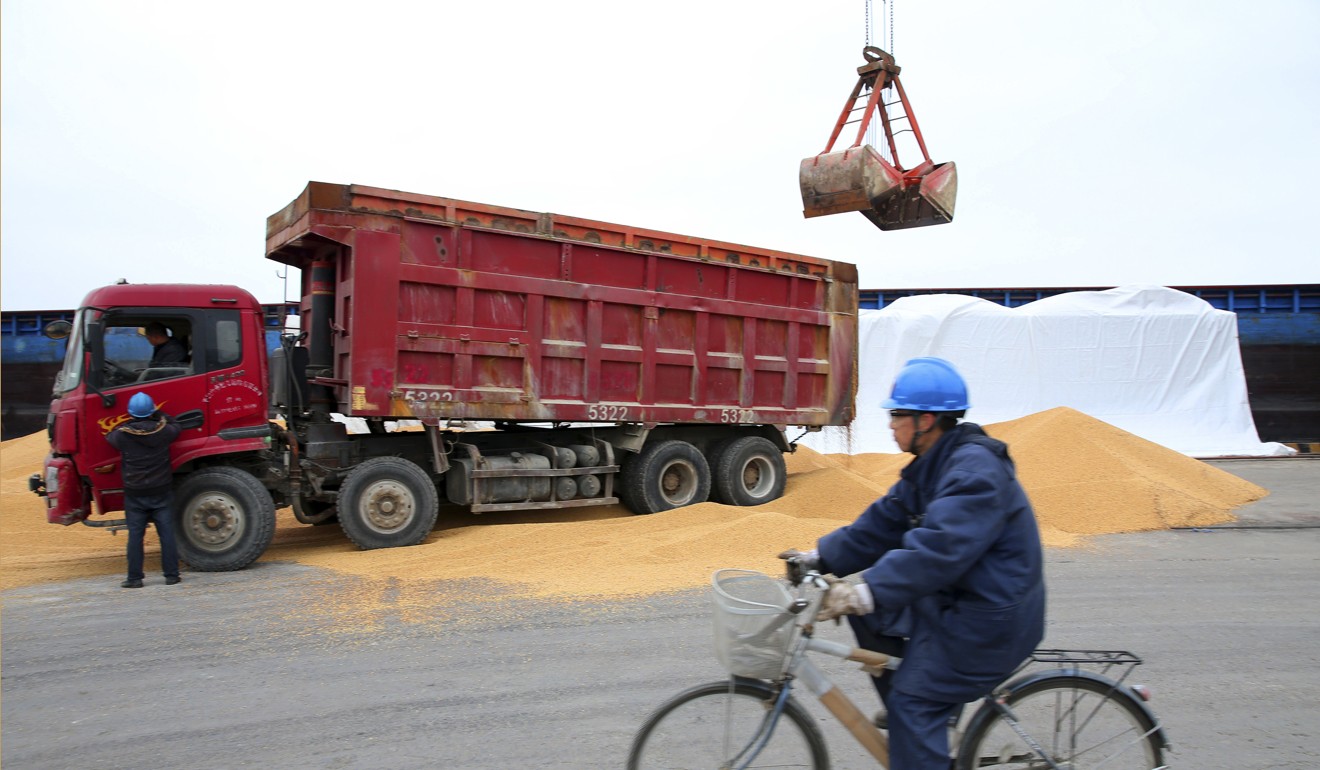
Brazil’s farmers count their soybeans as US and China tussle over trade
South American growers could gain from dispute but are wary of exchange rate volatility and high freight costs, analysts say

A day after China unveiled plans to impose a 25 per cent duty on soy imports from the United States, Brazilian farmers who would likely gain from the measures are not rushing to sell their beans, a trade group said.
Exchange rate volatility and high freight costs were cause for caution, said Marcos da Rosa, president of the national chapter of grain growers association Aprosoja.
He said there were many unanswered questions about the US-China trade spat and the real impact that the duties would have on US soybean exports. The tit-for-tat tariff plans announced this week by the United States and China will not be carried out immediately.
“China has already bought some of the US crop in advance. If tariffs are levied, they will not affect all of the US supply,” da Rosa said.
Brazilian soybean premiums continued rising on Thursday morning, reaching US$1.85 per bushel over Chicago at Brazil’s Paranaguá port, although domestic prices were little changed.
“Maybe next week, when the dust settles, farmers will change their stance,” said one trader from Mato Grosso, which accounts for more than a quarter of Brazil’s soybean output.
“Soy trade activity has been slower than what I thought yesterday and today.”

Da Rosa said that before China’s measures were announced, grain handlers were paying around 63.50 reais (US$18.98) per 60kg bag of soy in the town of Canarana, which is far from the port. As a farmer from the region, Da Rosa said, those levels were not high enough to cover costs.
In towns like Sorriso and Sinop, soy prices were around 65 reais per bag on Thursday, virtually the same as last week, the trader said.
Still, Enilson Nogueira, an analyst at consultancy Céleres, said he expected Brazilian exports to rise due to strong demand from China, with high port premiums offsetting a drop in Chicago soy futures on Wednesday.
May soybean futures ended up 16 cents at US$10.31-1/4 on Thursday as worries about a trade war subsided.
China buys about 60 per cent of globally traded soybeans to feed the world’s biggest livestock industry. Brazil supplied half of its imports last year while the US supplied around a third.
Though Brazil was well positioned to redirect some exports to China, strong internal demand from the soy crushing industry limited the country’s ability to entirely replace US supplies, said Ana Luiza Lodi, an analyst with INTL FC Stone.
“We export more than we consume and always end the year with a tight balance,” Lodi said.